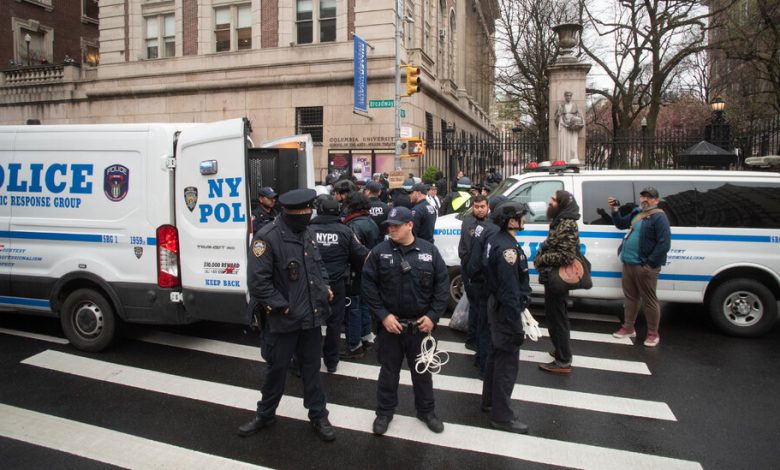Protests Intensify at Columbia, Forcing Difficult Choices for Leaders

For a second day, pro-Palestinian students at Columbia University on Thursday directly challenged the vow that their administrators made during a high-stakes congressional committee hearing to crack down on unauthorized student protests as part of the university’s fight against antisemitism.
The students have set up dozens of tents on the South Lawn of the campus, in front of the iconic Butler Library. They have also set up a makeshift kitchen, and held a teach-in and a film screening. And though Columbia administrators have closed the campus’s gates to outsiders, hundreds of students and others rallied with the protesters inside and outside of the school, overnight and through the morning.
“They can threaten us all they want with the police, but at the end of the day, it’s only going to lead to more mobilization,” said Maryam Alwan, a senior and pro-Palestinian organizer on campus, speaking from the tent encampment.
The escalation is a sharp challenge to Columbia’s president, Nemat Shafik, who largely conceded in a hearing before the House Committee on Education and the Workforce on Wednesday that she felt some of the common chants at pro-Palestinian protests were antisemitic. It underscores the difficulty that she and other college presidents are facing as they try to strike a balance between supporting the free speech rights of some students and protecting other students from statements academic leaders say are discriminatory and hateful.
“Trying to reconcile the free speech rights of those who want to protest and the rights of Jewish students to be in an environment free of harassment or discrimination has been the central challenge on our campus,” Ms. Shafik told members of Congress on Wednesday.
Etched into Columbia’s history is the brutal police crackdown its administrators authorized in 1968 against student protesters who were occupying academic buildings. The fallout of the violence tarnished the school’s reputation and led it to institute reforms in favor of student activism.
